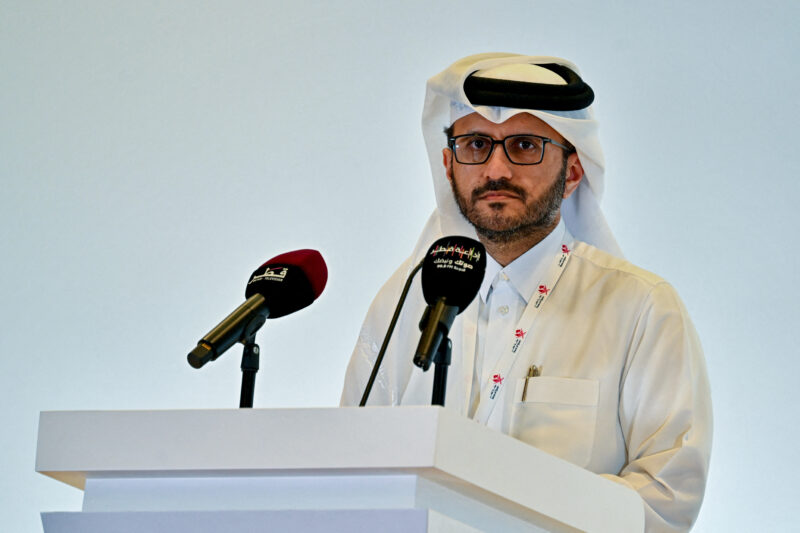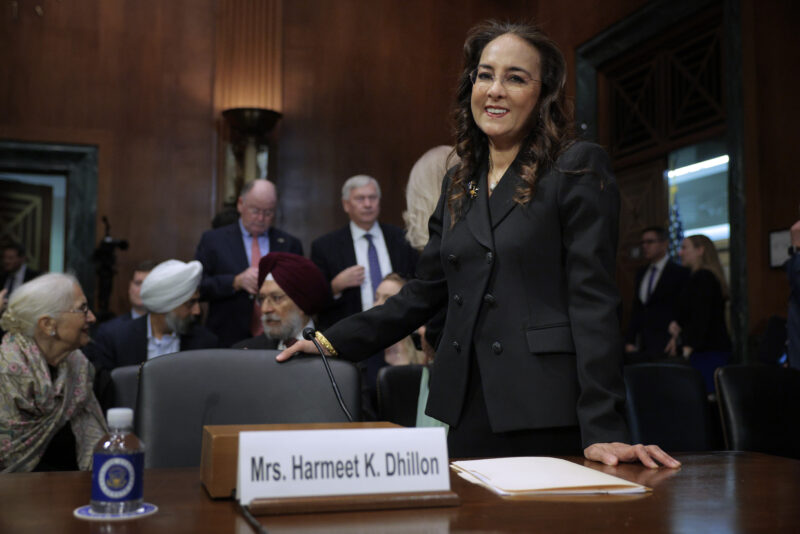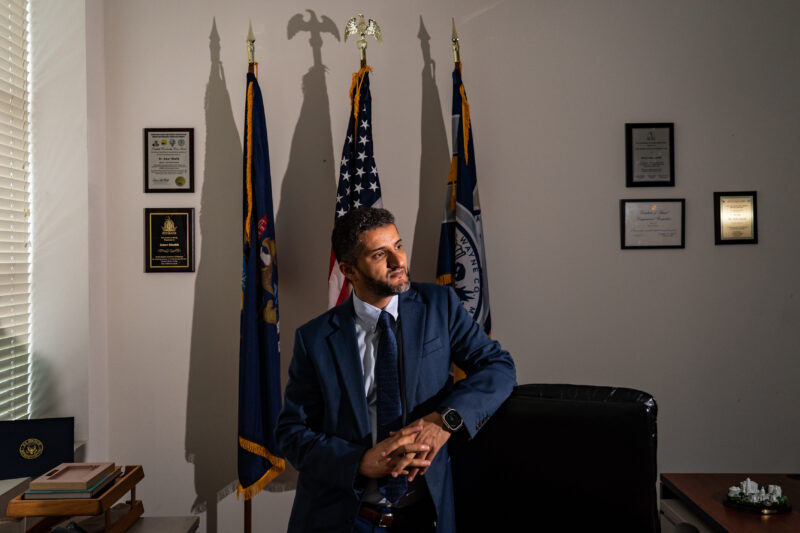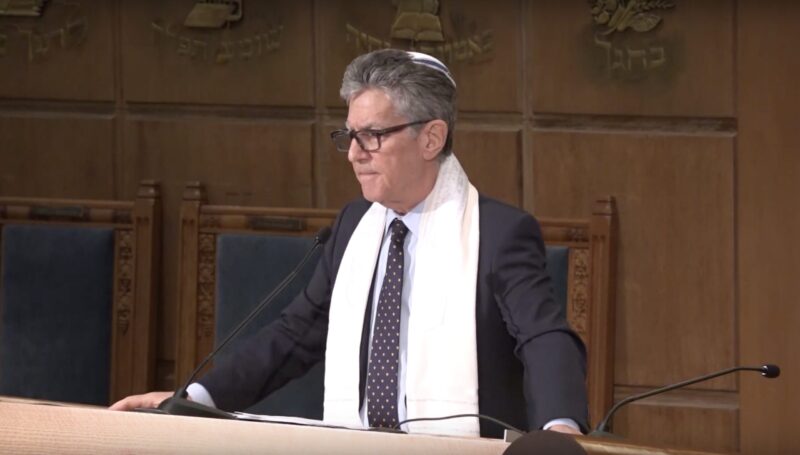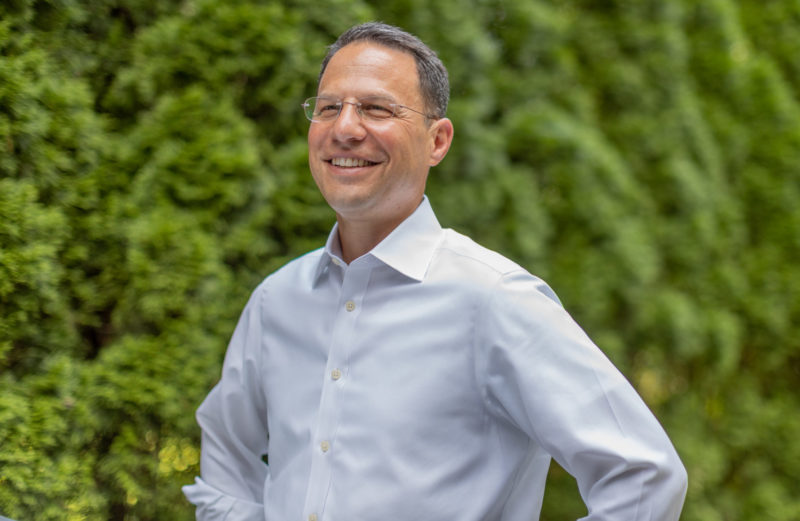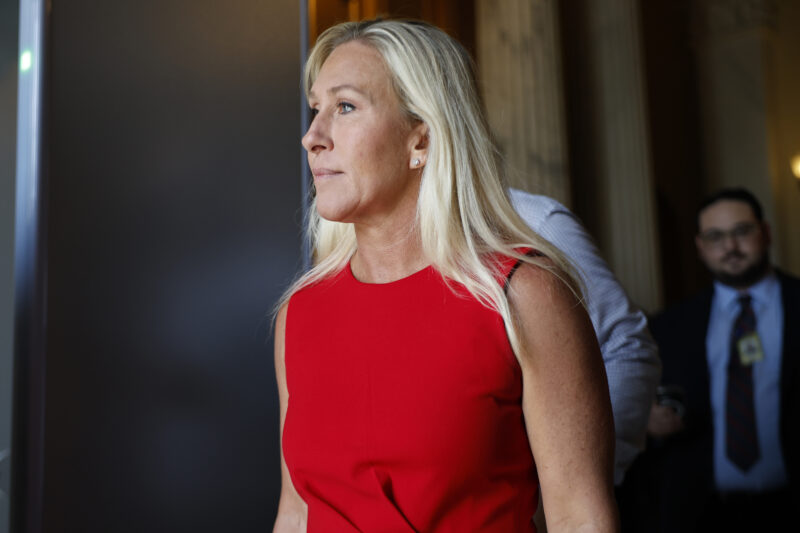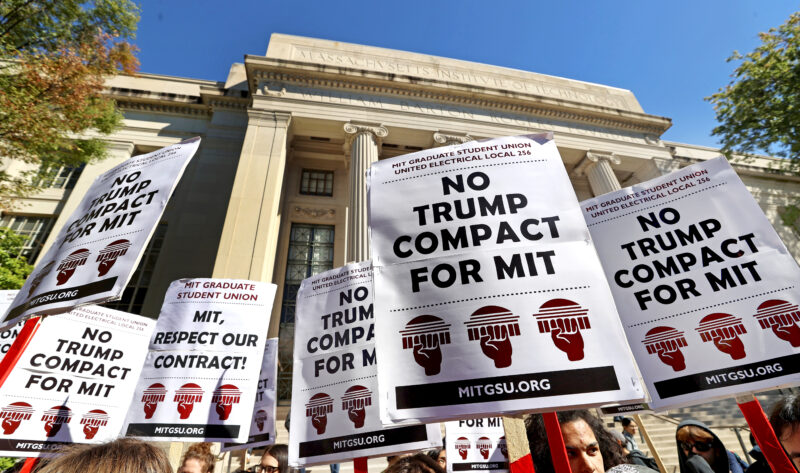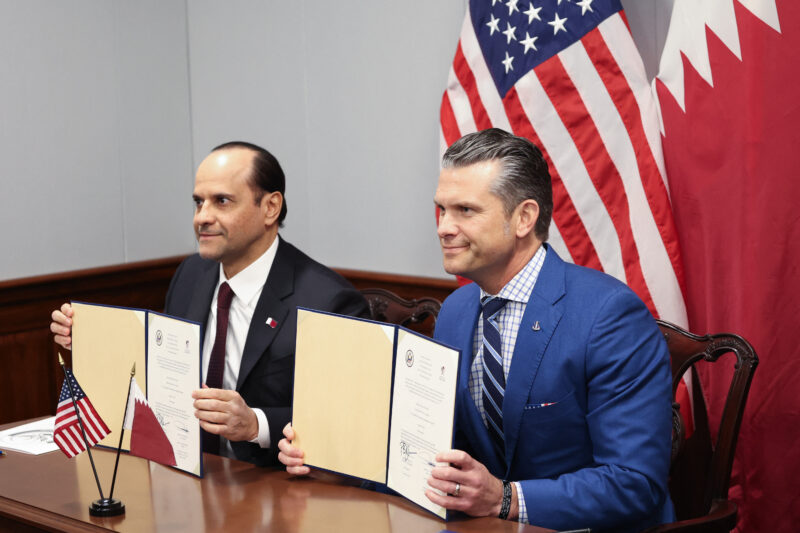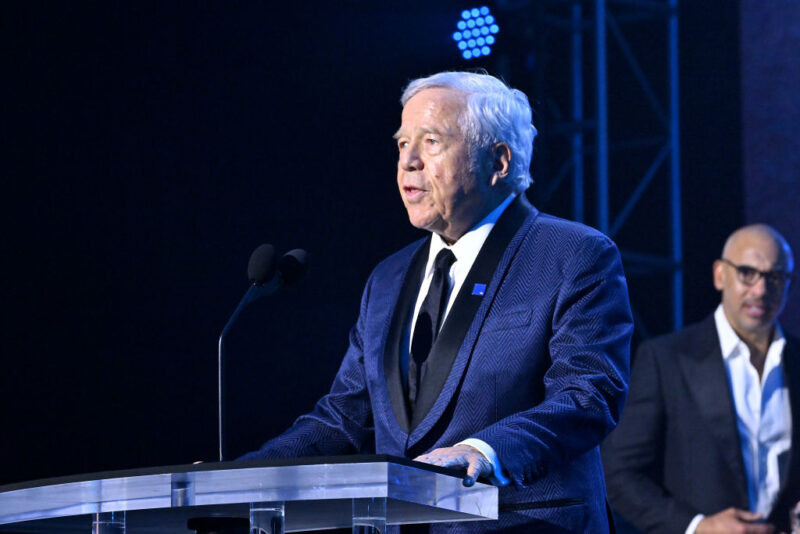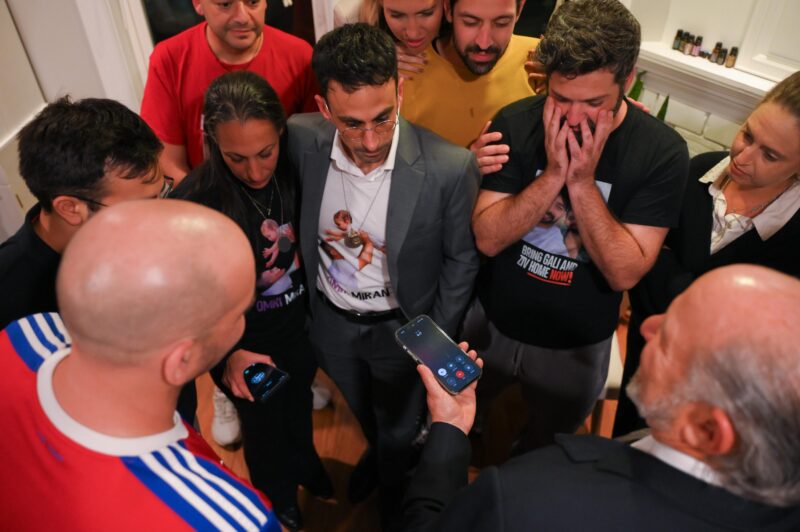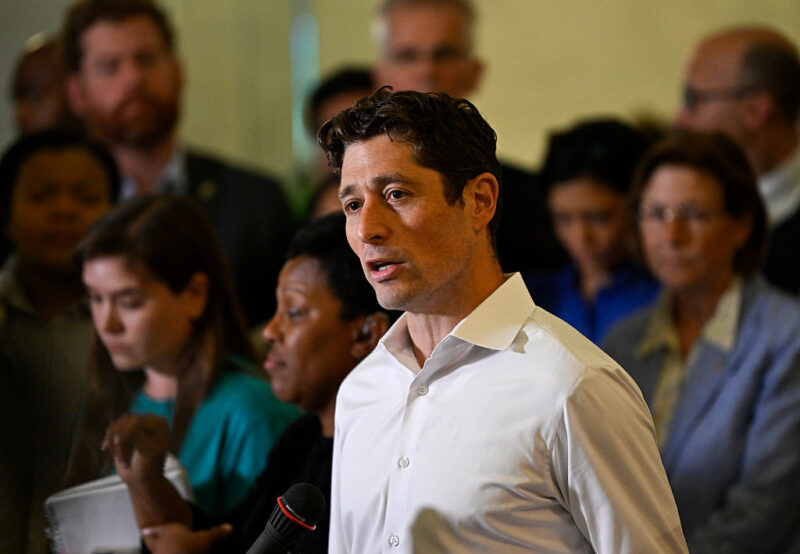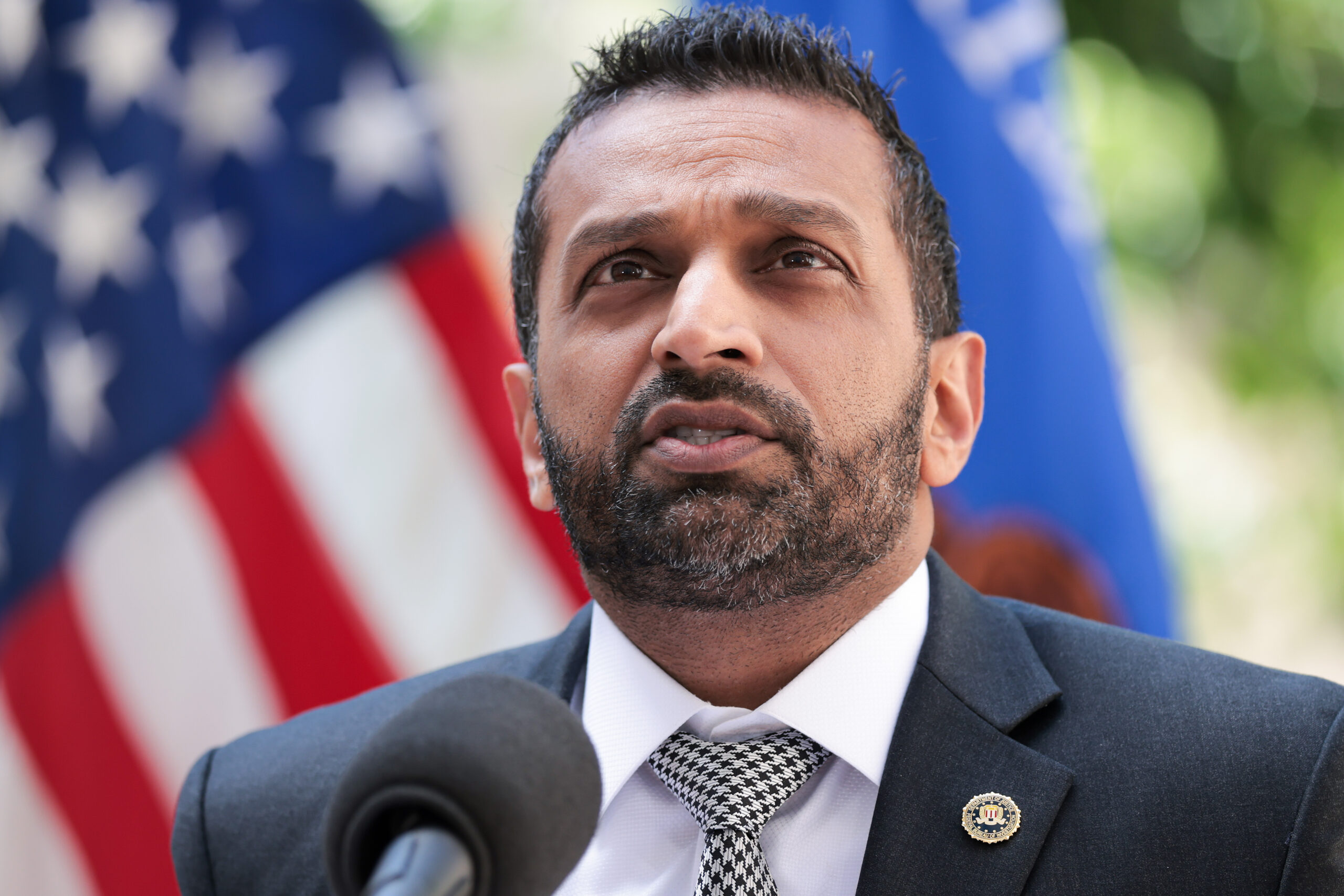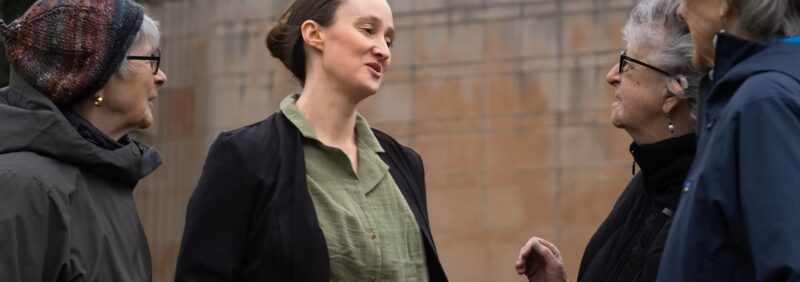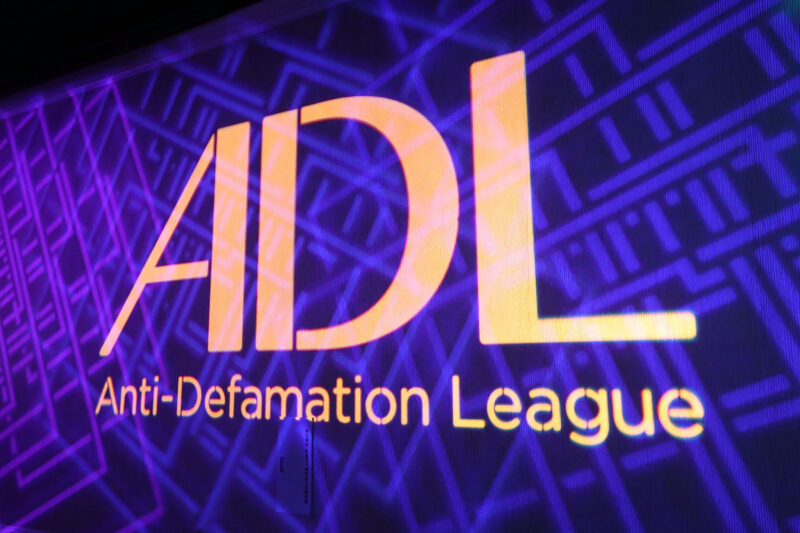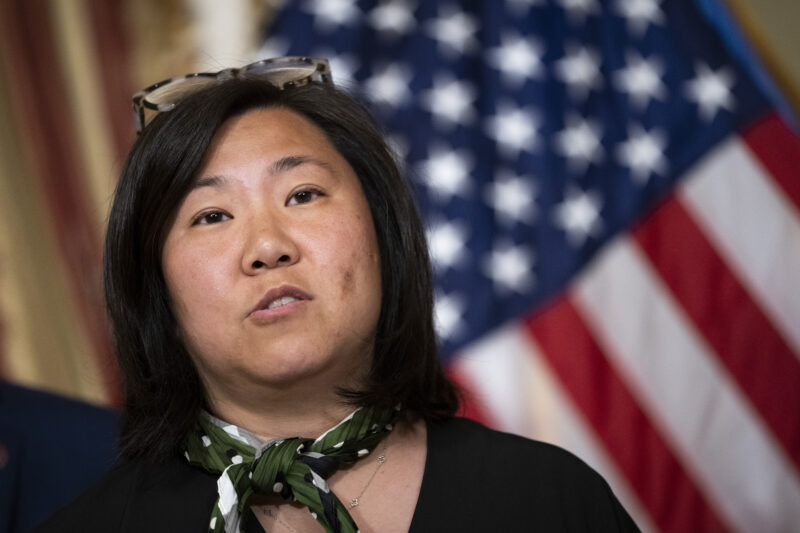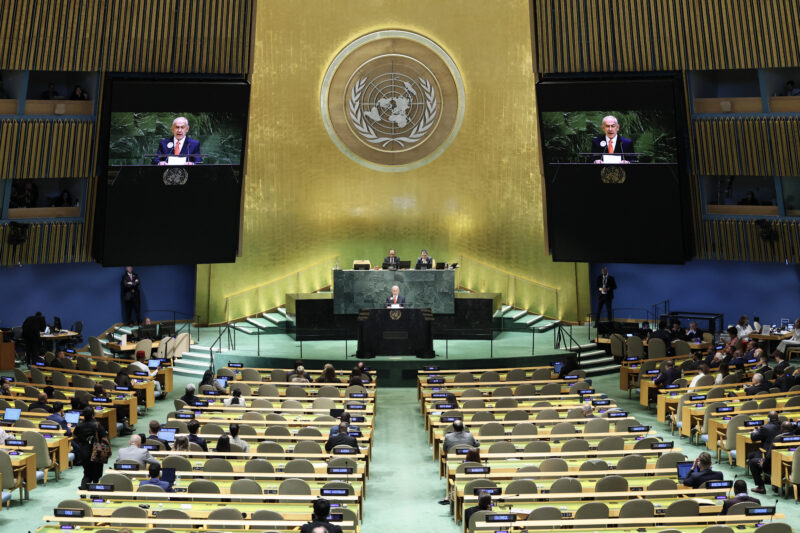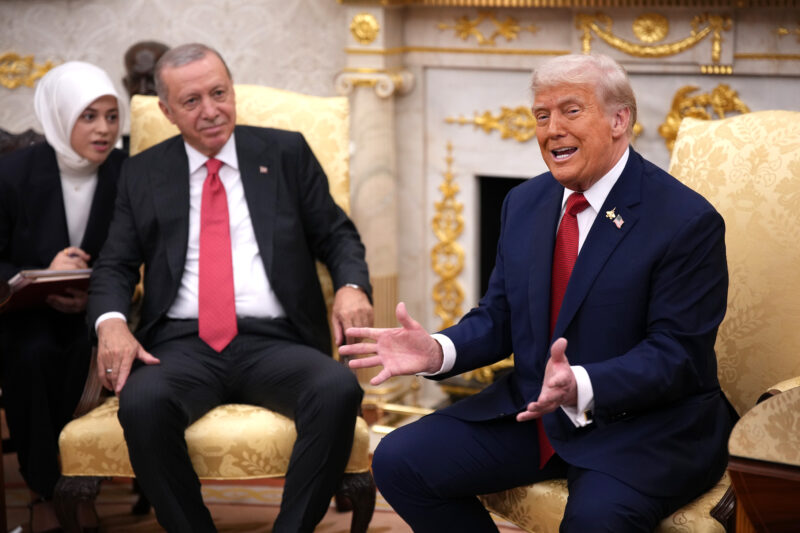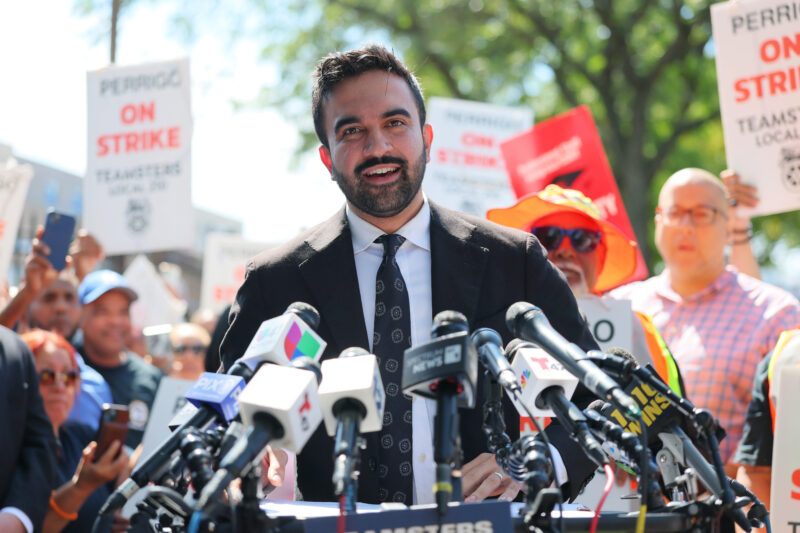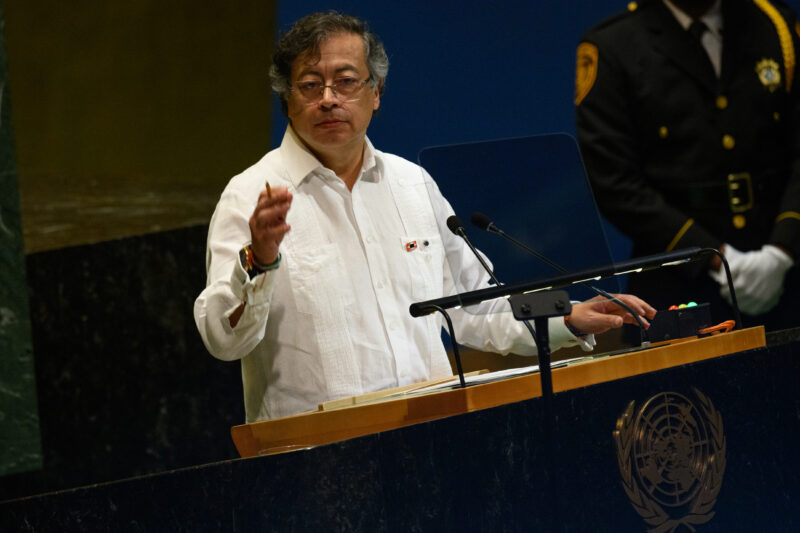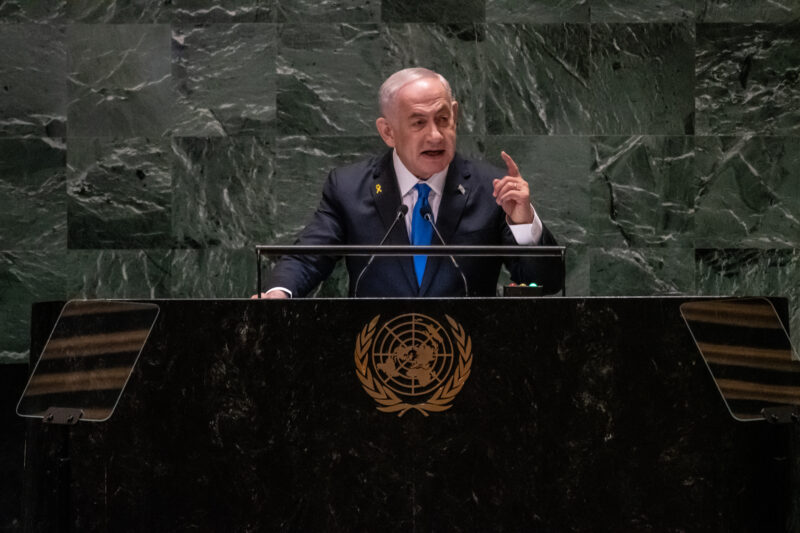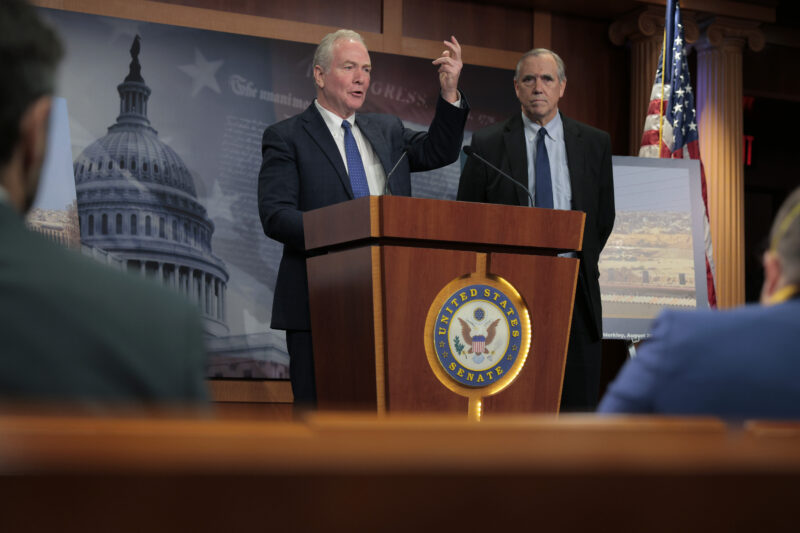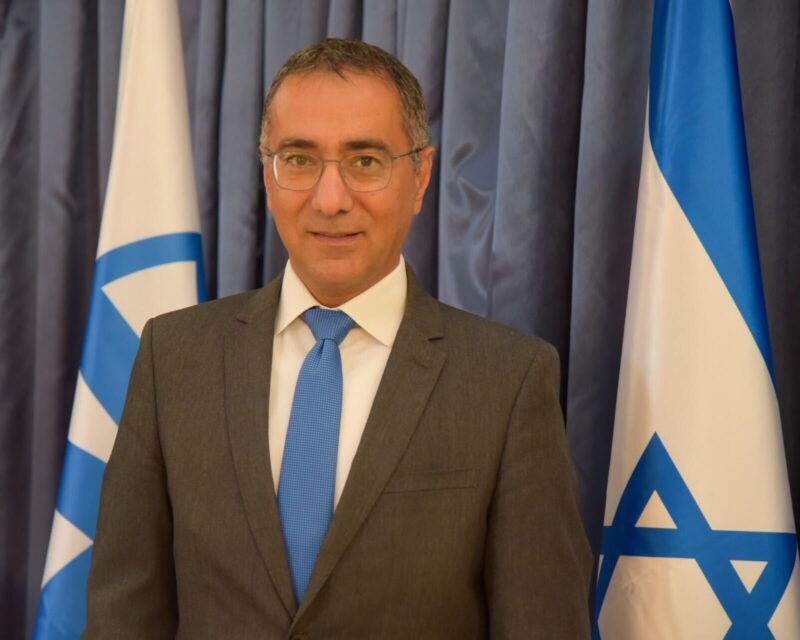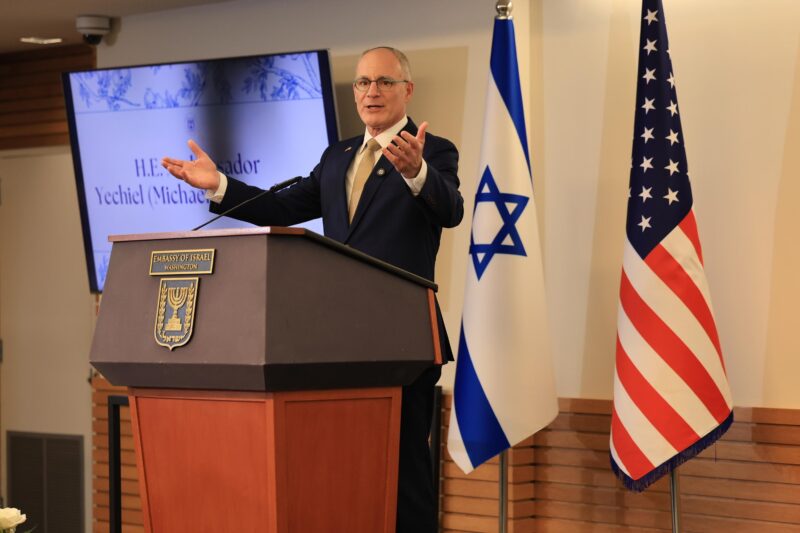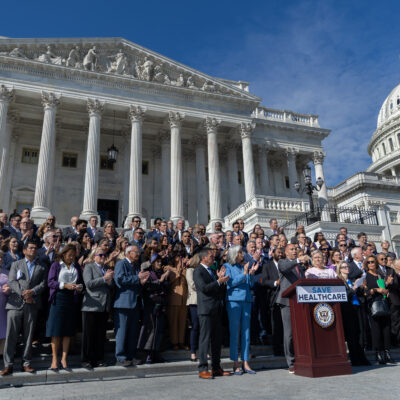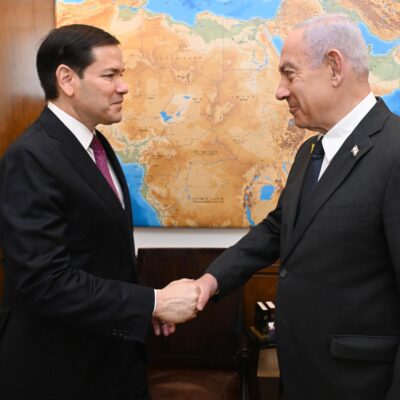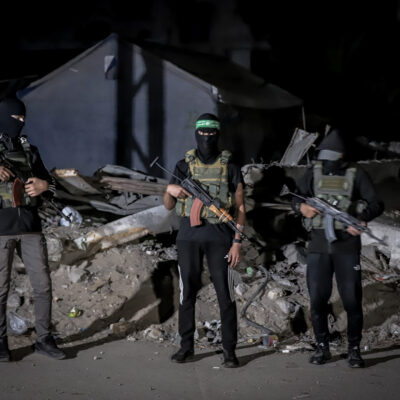
Daily Kickoff: Israel vs. South Africa at the ICJ
Good Thursday morning.
In today’s Daily Kickoff, we cover the pushback on Capitol Hill to the International Court of Justice’s hearing on Israel happening today, and report on confirmation from the Biden administration over the status of the Golan Heights. Also in today’s Daily Kickoff, Sharon Nazarian, Irwin Cotler and Yoav Gallant.
From Jerusalem to Washington to Pretoria, all eyes are on the International Court of Justice (ICJ) in The Hague today, which is hearing a complaint by South Africa accusing Israel of genocide and making an appeal for an injunction to stop the war in Gaza, Jewish Insider senior political correspondent Lahav Harkov writes.
With the case based in part on bellicose statements by Israeli politicians, including cabinet ministers, and pop singers, Israeli Prime Minister Benjamin Netanyahu — who was also cited by South Africa’s representative at the court this morning — clarified Israel’s position in a video released Wednesday evening.
“Israel has no intention of permanently occupying Gaza or displacing its civilian population,” he said. “Israel is fighting Hamas terrorists, not the Palestinian population, and we are doing so in full compliance with international law.”
Netanyahu noted the IDF’s efforts to “minimize civilian casualties,” such as dropping leaflets, calling Gazans and opening corridors out of combat zones, while Hamas is “doing its utmost to maximize” harm to civilians by using them as human shields.
“Our goal is to rid Gaza of Hamas terrorists and free our hostages. Once this is achieved Gaza can be demilitarized and deradicalized, thereby creating a possibility for a better future for Israel and Palestinians alike,” he said.
The ICJ is unlikely to order Israel to end the fighting in Gaza, but could issue other injunctions, which would not be binding but could still impact the continuation of the war, a Justice Ministry source told JI. As a terrorist organization, Hamas is bound neither by the laws of war nor ICJ rulings.
Secretary of State Tony Blinken called the genocide accusation “meritless” in a press conference in Tel Aviv earlier this week, noting that it is “particularly galling, given that those who are attacking Israel – Hamas, Hezbollah, the Houthis, as well as their supporter, Iran – continue to openly call for the annihilation of Israel and the mass murder of Jews.”
But as Blinken praised the United Nations and called for Israel to put its trust in the international organization’s workers, the watchdog NGO UN Watch published further evidence of ties between Hamas and the U.N. Relief and Works Agency (UNRWA), which aids Palestinian refugees and their descendants.
Israel has a decades-long and well-founded history of skepticism about the U.N., and recent events and revelations have only served to bolster that position.
UN Watch uncovered a Telegram group of 3,000 UNRWA teachers in Gaza, many of whom celebrated the Oct. 7 massacre as it was happening. The group, UN Watch showed, regularly sends messages inciting and praising terrorism.
UNRWA teacher Waseem Ula posted a photo of an explosive vest with the message, “Wait, sons of Judaism,” and wrote of a terrorist who took part in the Oct. 7 attack that God should “admit him to paradise without judgment.” Another teacher, Abdallah Mehjez, who formerly worked for the BBC, said that Gazan civilians should ignore Israel’s warnings to move away from areas that the IDF plans to attack -— in other words, to serve as human shields for Hamas.
“This is the motherlode of UNRWA teachers’ incitement to jihadi terrorism,” UN Watch’s executive director, Hillel Neuer, said, noting that the behavior is also in violation of the U.N. Code of Conduct.
Blinken emphasized that Israel had no choice but to work with the U.N. only hours before the trove of messages was published. He called the U.N. “indispensable,” saying that there is “simply no alternative.” He paid tribute to the “extraordinary courage” of U.N. personnel and aid workers. More below.
The secretary of state also praised Sigrid Kaag, the newly appointed leader of the U.N.’s Gaza reconstruction effort. Kaag, the wife of a former Palestinian Authority deputy prime minister under Yasser Arafat, is a former Dutch politician who vocally opposed the prime minister’s support for Israel. She is one of many U.N. appointees tasked to deal with the Israel-Palestinian conflict whose biases against the Jewish state were apparent before their first day on the job.
Beyond the U.N.’s personnel choices, the IDF has repeatedly found that the international organization’s facilities and equipment were used to aid Hamas terrorism, including weapons belonging to Hamas’ elite Nukhba force inside UNRWA bags and UNRWA schools being used to shield terrorist activity. Hamas shot rockets and mortars at Israel from UNRWA schools on many occasions.
Some notable polling: A significant share of American Jews feel less safe today than they did before Oct. 7, recent polling commissioned by the American Jewish Committee, shared exclusively with JI, found.
The survey, conducted by the pollster SSRS between Oct. 5- Nov. 21, found that more than 4 in 10 (43%) American Jews said the Oct. 7 terror attacks in Israel made them feel either a “great deal” or a “fair amount” less safe in the United States. An additional 34% said the Hamas massacre made them feel “a little” less safe.
The polling is from the AJC’s State of Antisemitism in America 2023 Report, a survey of American Jews and a comparison study of U.S. adults. The full poll will be coming out next month.

classroom concerns
UCLA professor’s ‘wake-up call’ to anti-Israel hostility on campus

When Sharon Nazarian started teaching a new class on Oct. 4 at the University of California Los Angeles, designed to look at antisemitism from a global lens, she couldn’t have known just how timely the topic was about to become. Three days after the class began, Hamas terrorists infiltrated Israel and launched a massive terror attack that killed more than 1,200 Israelis. In the wake of the war that followed, rates of antisemitism skyrocketed on college campuses around the U.S. “I have to admit that when I designed the class, ‘The Globalization of Antisemitism: A Survey of Transnational Trends,’ largely based on my Anti-Defamation League experience, I had no idea what Oct. 7 would bring,” Nazarian, the former senior vice president of international affairs and current board member of the ADL, told eJewishPhilanthropy’s Haley Cohen for Jewish Insider.
Mirror image: “Everything that you have read about in terms of the challenges on U.S. campuses showed up directly in my class and with my students,” she said, calling the class, made up of 25 students from diverse backgrounds (an estimated 30% of whom are Jewish), a “wake-up call” about today’s students. The class ran in the global studies department – which Nazarian, a former adjunct professor at UCLA from 2005-2017, said provided a more diverse group of students than doing so through the Jewish or Israel studies departments would have.
Echo chambers: “Students are unwilling to hear theses that challenge their own worldview. Students today have far less knowledge of history and analytical thinking skills than previous generations, and this becomes a huge challenge when teaching critical issues such as antisemitism,” Nazarian said, noting that social media — TikTok in particular — has contributed to “the relativism trap.”





